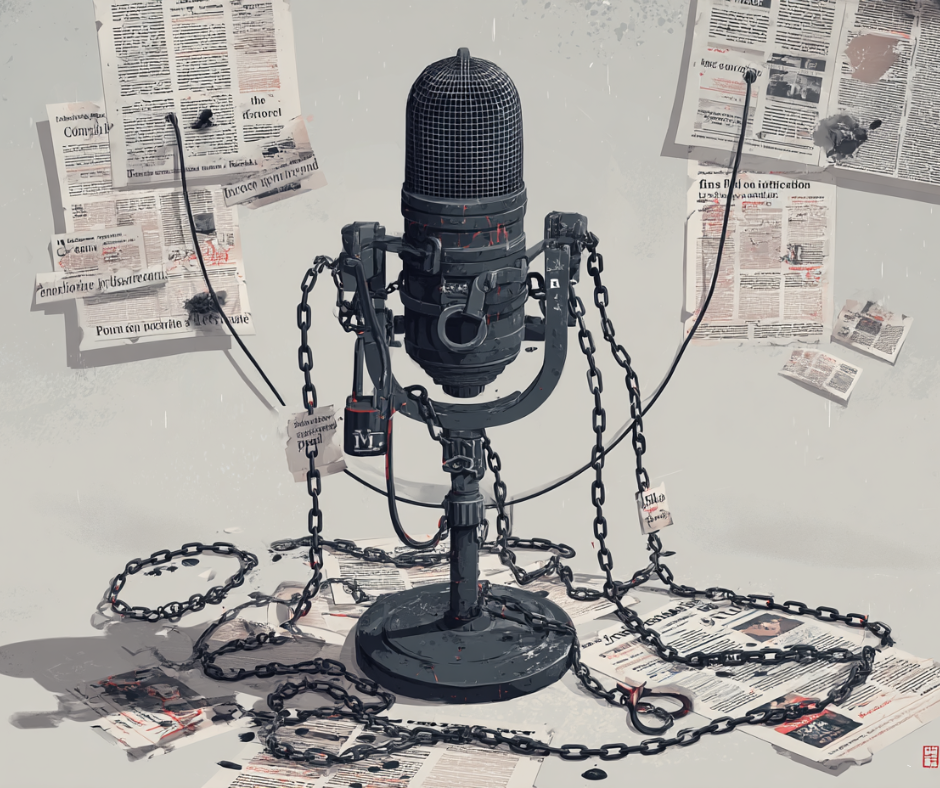The Independent Journalists’ Association of Serbia (IJAS/NUNS), the Association of Independent Electronic Media (AIEM), and Local Press express deep concern over the process by which amendments to three key media laws have been conducted—the Law on Public Information and Media (LPIM), the Law on Electronic Media (LEM), and the Law on Public Media Services (LPMS). The proposed amendments, submitted by the Serbian Government, were adopted today by the Parliamentary Committee on Culture and Information and will be debated by MPs as early as tomorrow in an extraordinary session.
A process that has lasted for more than a year and a half was brought to its final phase through an unacceptably accelerated procedure, short deadlines, and a lack of transparency, all under the pretext of alignment with European Commission recommendations.
It is important to recall that the European Commission’s comments on the draft laws were received in December 2023, yet the Ministry of Information and Telecommunications only responded and formed working groups at the end of 2024. These groups were given extremely short deadlines and had no access to the versions of the drafts sent to Brussels. Moreover, despite repeated requests from journalists’ and media associations for a public debate on the latest amendments to the LPIM and LEM, the Ministry rejected the proposal.
The way this process was conducted—as well as the content of the adopted amendments—contributes to the further deterioration of media freedom and severely undermines the democratic legislative procedure.
The Ministry’s latest proposals to amend Articles 84 and 85 of the LPIM, which relate to the presumption of innocence and reporting on criminal proceedings, were revised in line with the recommendations made by IJAS, AIEM, and Local Press. These organizations previously warned that earlier formulations excessively restricted journalists and were not in line with European standards. However, the amendments regarding public procurement and media ownership remain problematic and represent a step backward for media freedom.
Public procurement procedures remain inadequately regulated—the laws do not specify the conditions under which services may be procured, do not establish a control mechanism, nor do they mandate the application of the Public Procurement Law. This leaves room for abuse and favoritism toward certain media outlets, contrary to both European standards and European Commission requirements.
In their latest comments on the LPIM, IJAS, AIEM, and Local Press once again highlighted the unacceptable reintroduction of state ownership in the media, which runs counter to Serbia’s Media Strategy. They also reiterated concerns about Article 39a, which imposes certain obligations on media outlets owned (directly or indirectly) by entities such as Telekom Serbia—without independent oversight or penalties for violations. They warned that relying solely on self-regulation in media under state control cannot be considered a guarantee of editorial independence and may instead legitimize political influence.
The amendments to the Law on Public Media Services introduce some positive changes. However, the latest revisions adopted after the associations’ final comments remain superficial and fail to address fundamental issues such as editorial independence and concentration of power.
The Programming Council formally appoints the Viewer and Listener Rights Commissioner, but this role remains marginalized—the commissioner is hired on a freelance basis and lacks the authority to initiate proceedings independently. A key problem remains the concentration of power in the hands of the general director, as the Management Board still lacks a decisive role in appointing editorial staff. New rules on public service budget funding, despite a nominal ban on political influence, still leave room for abuse, especially due to vaguely defined categories such as “projects of special social importance.”
Although IJAS, AIEM, and Local Press have repeatedly insisted that the Law on Electronic Media be amended to improve the sections concerning election campaigns, another opportunity has been missed. The legislation still fails to address key issues shaping the media landscape during election campaigns—covert political advertising, misuse of incumbents’ visibility, and political marketing remain outside the scope of regulation. Numerous domestic and international organizations and institutions monitoring elections in Serbia have long identified these issues as major obstacles to fair and equal access to information for citizens.
This non-transparent legislative process, coupled with the disregard of key concerns, further threatens media freedom and democratic principles. Urgent action must be taken to establish a fair and transparent media environment in line with European standards, with full accountability from all relevant institutions. Only through transparency, dialogue, and adherence to the rule of law can we ensure an independent media sector that serves the interests of the public and democracy.
IJAS, AIEM and Local Press
Belgrade, June 9, 2025




